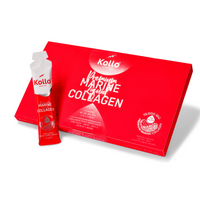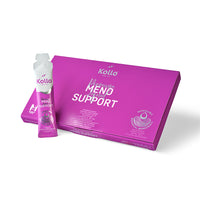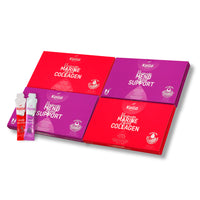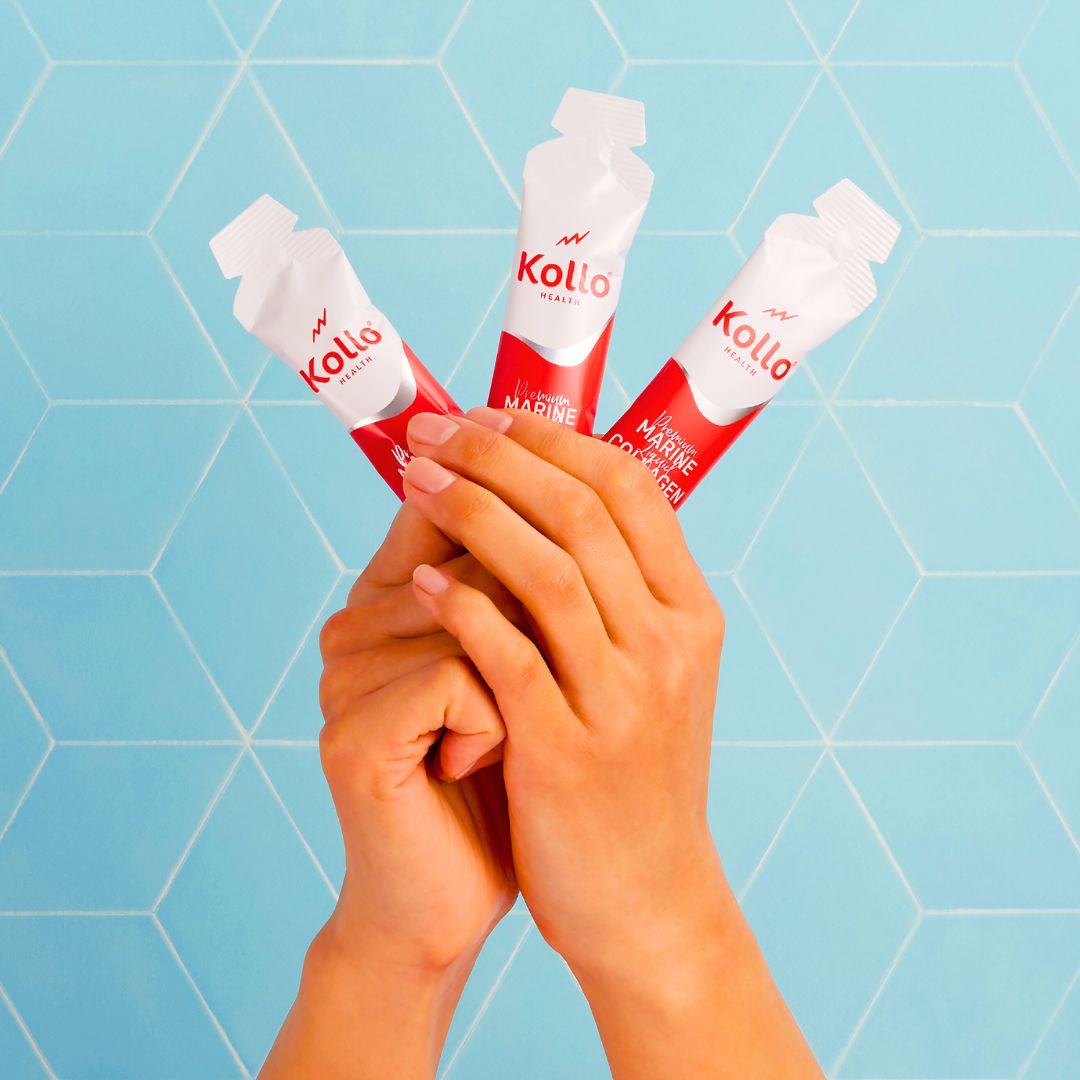All about Collagen Peptides

All about Collagen Peptides
Collagen is an incredibly popular dietary supplement that can help to improve the signs of ageing and support good health in a variety of ways. However, choosing the right type of collagen supplement is key to achieving noticeable results. Many people are unaware of the differences between collagen and collagen peptides, but it is vital to choose supplements that contain hydrolysed collagen peptides. Let's take a look at what collagen peptides are and how they can help to support skin, joints and overall health.What is collagen?
As much as <a href="https://www.healthline.com/nutrition/collagen#what-it-is">one-third of all protein found in the body is collagen.</a> It is an integral part of the structure of our bodies and responsible for the structure of our muscles, skin, ligaments, bones, cartilage and other connective tissues. It also contributes to the normal function of almost all of our vital organs.
There are several types of collagen found naturally in the body, with <a href="https://www.weishardt.com/nutraceutical/naticol-collagen-peptides/all-about-collagen-peptides/">Type 1</a> being the most prevalent. 80% of collagen found in the skin, 80% to 85% of collagen in the tendons and ligaments, and 90% of collagen found in the bones is Type 1. However, as we age our Type 1 collagen levels begin to deplete. The consequences of lowering collagen levels are vast; there is a noticeable reduction of elasticity in the skin leading to sagging and wrinkles, as well as reduced mobility in the joints leading to aches, pain and stiffness.
In order to reduce the impact of depleting collagen levels, many people consider consuming collagen supplements, or they increase the amount of collagen-rich foods in their diet. However, whole collagen molecules are too big to be broken down and absorbed by the body and instead they are destroyed in the gut. In order for collagen supplementation to work, it must be administered in the form of collagen peptides.
What are collagen peptides?
Collagen peptides are a form of collagen that has been broken down in order that it can be more easily absorbed by the body. Three interwoven polypeptide chains make up each molecule of collagen. These triple helix chains are not soluble and therefore unavailable to the body when consumed. When an enzymatic process called hydrolysis is used to break down the molecular bonds of these individual collagen chains, it is possible to produce soluble collagen peptides which are small and bioactive enough that the body can absorb them.
Unlike whole collagen molecules, collagen peptides are easily absorbed and utilised by the body. The body can use them to restore tissues in the same way it would use collagen that was naturally produced by the body. Furthermore, it seems as though collagen peptides work to <a href="https://www.everydayhealth.com/skin-beauty/which-collagen-sources-should-you-try/">trigger the body's natural collagen production processes</a> to further support tissue structure.
Collagen peptides are derived from either marine or bovine protein. They are rich in Type 1 collagen, which is the type needed to support the structure of skin, joints and bones. Since they are soluble in cold water, they can be added to drinks or shakes for quick, simple consumption that is easy to incorporate into a daily routine. Plus, the body absorbs the peptides within just a few hours so that they can get to work restoring tissue structures.
What are the benefits of collagen peptides?
There is plenty of evidence to suggest that collagen peptides can help to improve common signs of skin ageing. <a href="https://onlinelibrary.wiley.com/doi/full/10.1111/jocd.12174>One study</a> found that skin hydration increased significantly after 8 weeks of oral collagen peptide supplementation. It also found that the skin's collagen density increased while the breakdown of the skin's collagen network decreased after just four weeks.
When it comes to joint health, collagen peptides have demonstrated promise in repairing damage to the joints. <a href="https://pubmed.ncbi.nlm.nih.gov/18416885/">One study found that joint pain in athletes was improved after 24 weeks of supplementation with collagen peptides.</a> The study was placebo-controlled, randomised and conducted double-blind. It found that the group of subjects who took the collagen peptide supplements reported an improvement in joint pain compared to those in the placebo group.
Research into the benefits of collagen peptides is ongoing and much more study is needed until we fully understand the various ways in which collagen could improve our health. However, there is a fast-growing body of evidence demonstrating the positive impact this supplement can have on our skin and joint health.

















